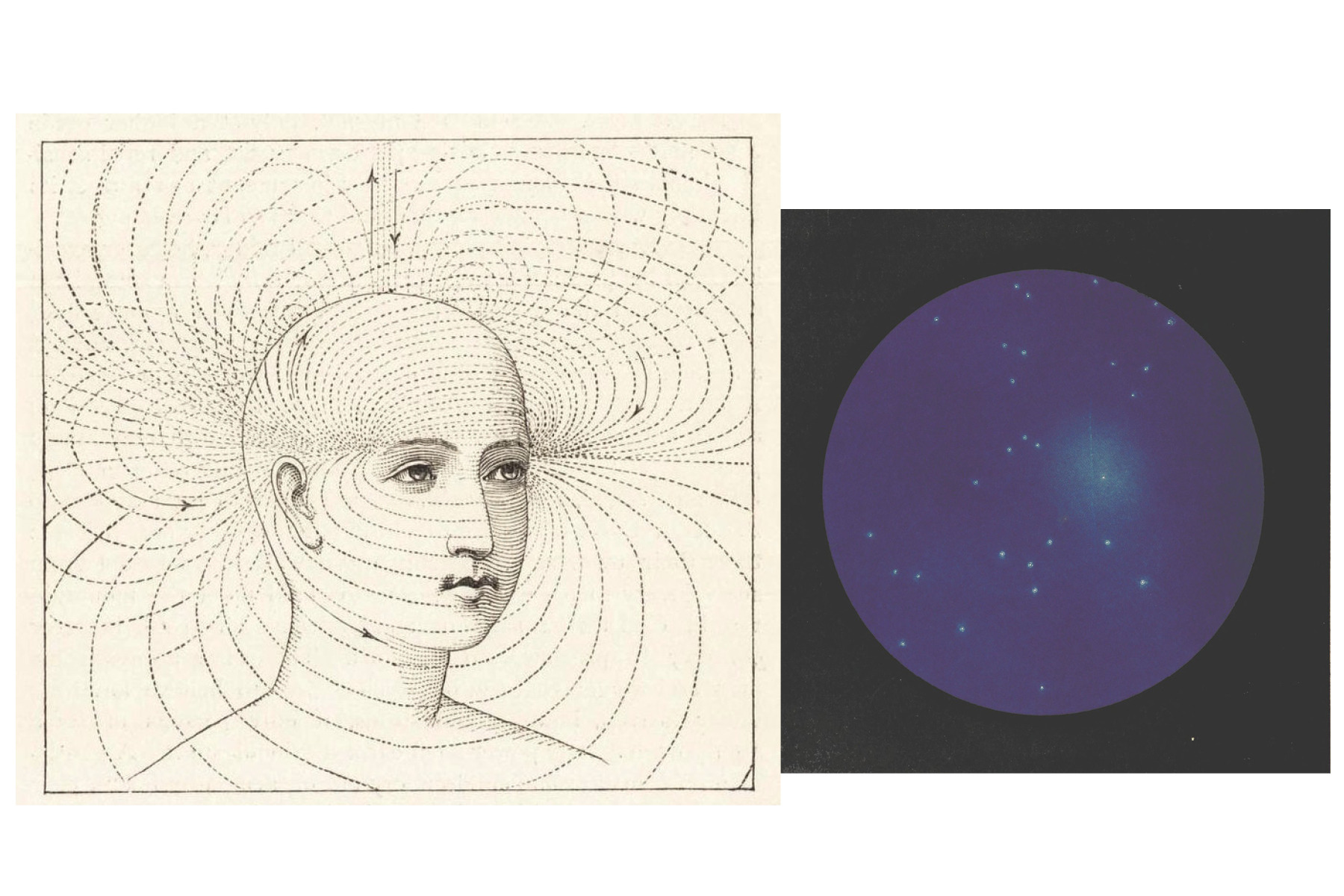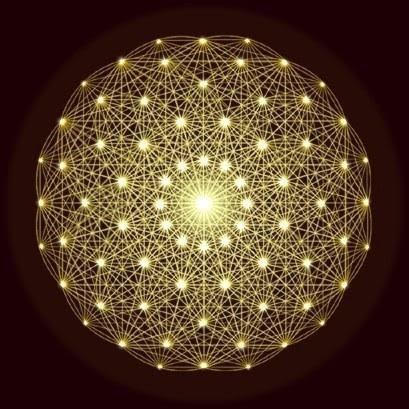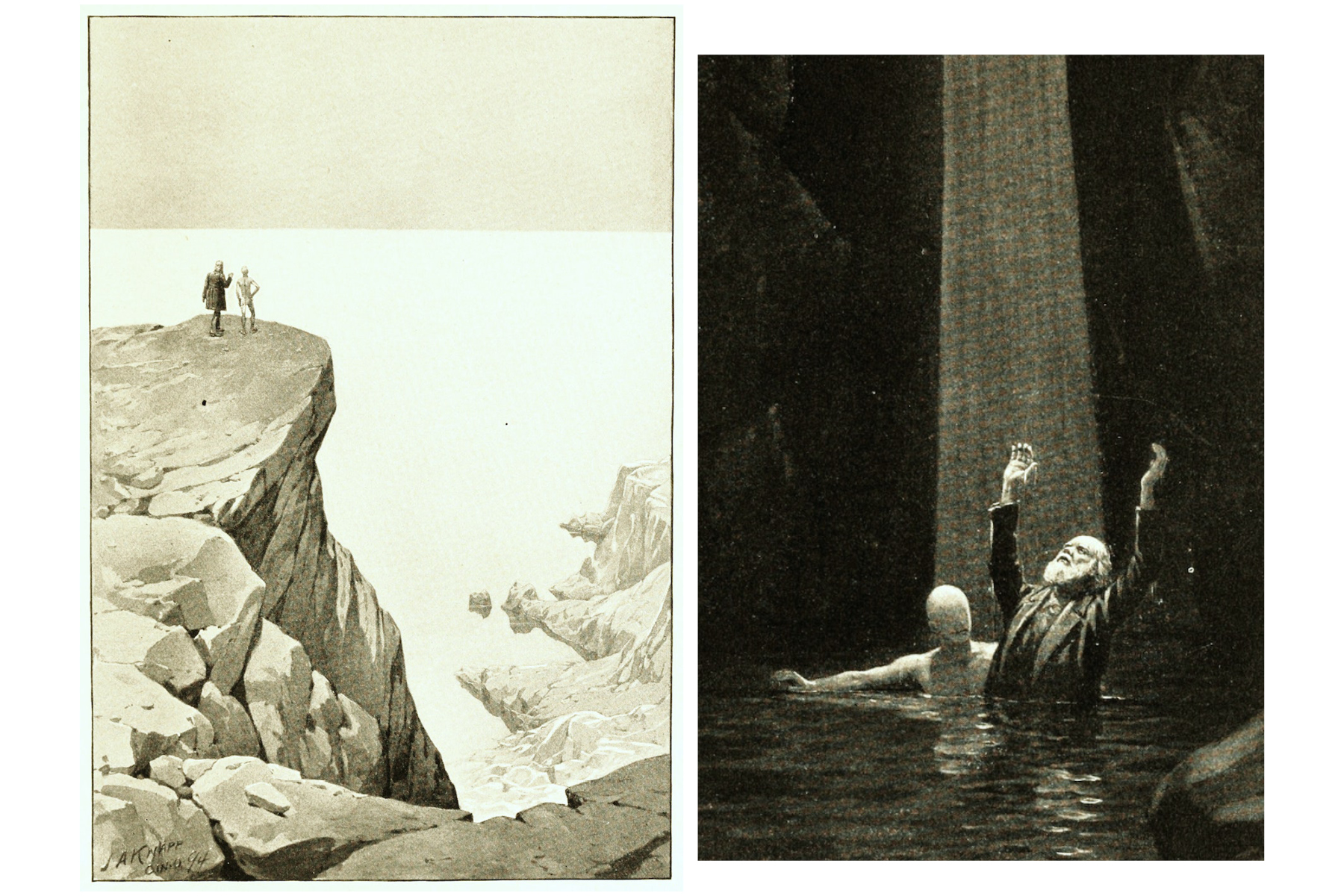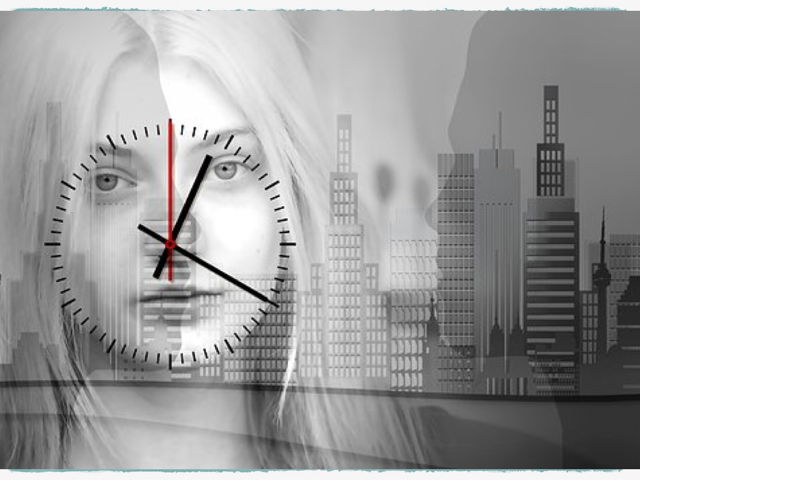In the nearly 50 years since C. G. Jung died, great strides in understanding of whole systems have occurred. It is now time to apply a holistic/systemic approach to a Jung’s model of the psyche with the aim of contemporizing our views of the unconscious. In particular, we will look at how ecological formulations offer richer, more complex models of the psyche, revealing a far more interconnected universe than previously imagined. Examples of intelligences in nature will provide potential ways to explore layers of the unconscious not often taken into consideration. This will be augmented by recent studies on altered states of consciousness which have access to types of knowledge not readily accessible in other ways, with qualities similar to oracles from the ancient world, such as the Pythia at Delphi.
Season: Fall 2021
Towards a 21st Century Model of Psyche: Altered States, Oracles, and Intelligences
Continuing to develop and explore the themes of intelligences in nature and oracles, we will begin with an imaginal exercise based on the gateway affective experience of wonder. We will then return to exploring and deepening understandings of the intelligences involved, considering them from the perspective of the alchemical notion of the lumen naturae (the lights in nature). Possible links revealed by recent research have begun to reveal new understandings of ancient oracular traditions. Combining these threads, we will seek to appreciate an oracular dimension of nature at the foundation of our vision of the unconscious, and thus a basis for a revision and expansion of our sense of self.
What is an Archetype? Working with Large Psychic Energies
Oregon Friends of Jung, in partnership with The Pacific Northwest Society of Jungian Analysts, continues our series of seminars designed to deepen your knowledge of Jungian psychology. You’ll have an opportunity to learn from and engage with Analysts who are experts in their fields.
Registration is now open for the Fall 2021 online seminar: What is an Archetype? Working with Large Psychic Energies. In keeping with our entire 2021-2022 Lecture series, the seminar will be held online, via Zoom Meeting. Attendance is limited to 15 participants.
Please see the seminar description below for details and registration information.
What is an Archetype? Working with Large Psychic Energies
For Jung, archetypes are basic forces in the human psyche that form part of our genetic or at least emergent mental heritage. They inhabit the collective unconscious. Jung believed that the human psyche was organized around fundamental experiences common to all humankind, experiences such as having a mother or father or having or being a child. Thus there is a mother archetype, father archetype, and child archetype with the latter sometimes taking on a spiritual element in the form of the divine child. Archetypes are also found in psychic movement, in dynamic processes such as rebirth, in becoming, in individuation.
Archetypes describe human experiences of great intensity; where the unbound energies exceed the capacity of the ego to contain them. Experiences of such scope and depth are likely to arise in many human lives at some point, with a range of baffling, profound, and sometimes disturbing effects. They may be numinous. They may give us access to the light, or the dark, or both. Although an archetypal engagement usually involves large forces, these energies can at times come through the side door, and somewhat paradoxically be encountered in small or ordinary happenings in our inner or outer lives. This seminar will explore how we might work with energies of this kind and quality, what they might demand of us, and what we might ask of them.
Reading assignments and material will be sent to participants two weeks before the beginning of each three-week seminar section and may be supplemented during each section.
![]()
![]()
Dates and Times
- Sundays from 1:00 – 3:00 pm
Schedule
- September 26, 2021 – Dunbar Carpenter
- October 3 – Dunbar Carpenter
- October 10 – Dunbar Carpenter
- October 24 – Maribeth Kallemeyn
- October 31 – Maribeth Kallemeyn
- November 7 – Maribeth Kallemeyn
Cost
- 12 hours of instruction: $195 (OFJ members: $185)
- Sorry, we are unable to offer refunds.
- Continuing Education Credits are available, with one hour of CE credit for each hour of attendance. CEUs will be available for purchase
,at a cost of $15, which will cover all CEUs earned over the six-session seminar.
Seminar Size
- Attendance is limited to 15 people
- If seminar fills, and you would like to be added to our wait-list, please write us at [email protected]. If you have any questions, please call 503-223-3080.
Seminar Leaders
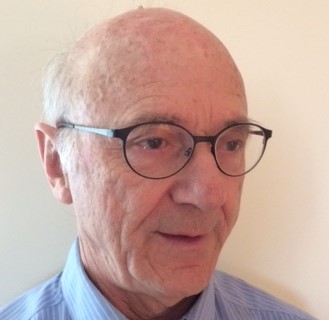 |
Dunbar Carpenter, Psy. D., is a Jungian analyst and clinical psychologist in private practice in Portland. He is a member of the Pacific Northwest Society of Jungian Analysts and is the Society’s Director of Training. He has been a practicing analyst, teacher, and individual and group supervisor for the past twenty-five years and has lectured and taught in both the United States and Zurich. Dunbar received his analytical training at the C.G. Jung Institute in Zurich, Switzerland. |
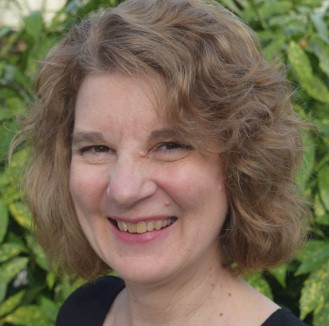 |
Maribeth Kallemeyn, Ph.D., is a Jungian analyst and clinical psychologist in private practice in Salem, Oregon. She has been in clinical practice since 2001. She completed her analytic training with the C.G. Jung Institute Pacific Northwest in 2018, and she is a member of the Pacific Northwest Society of Jungian Analysts. |
Another Whom We Do Not Know: Dreams as the Voice of the Inner Companion
In each of us there is another whom we do not know. He speaks to us in dreams and tells us how differently he sees us from the way we see ourselves. When, therefore, we find ourselves in a difficult situation to which there is no solution, he can sometimes kindle a light that radically alters our attitude – the very attitude that led us into the difficult situation.
C.G. Jung, Civilization in Transition ( CW 10, para 325)
Understanding dreams is difficult. Understanding our own dreams sometimes seems almost impossible. Even for those who have studied dreams for many years, one’s own dreams can remain frustratingly opaque. Why is it so difficult to understand what the unconscious is trying to tell us, and how can we get better at hearing its messages to us? This weekend we will explore dream interpretation with the aim of making it easier for us to work with our own dreams. On Friday we’ll look at basic principles of Jungian dream work and learn techniques and skills that foster deepened understanding.
Another Whom We Do Not Know: Dreams as the Voice of the Inner Companion
During the Saturday workshop we’ll take an in depth look at several dreams and practice working with dream material. And we’ll explore a range of approaches that can help us access the voice of the inner companion. When we can better understand our dreams, we have access to the life-giving voice of unconscious, whose wisdom is ever available to us if we are able to listen.
The Absent Father Effect on Daughters: Father Desire, Father Wounds
The absent father effect is a love story, but an unrequited one. Harm is done due to the presence of the father’s absence, affecting a daughter—and the father–in body, mind, and soul. The father is an essential aspect of the psyche and significant for the daughter’s psychological and physical life, personally and culturally. Topics of the psyche affected by the absent father include the negative father complex, puella archetype and the concept of the animus. The Friday talk will focus on the daughter- father relationship in order to shed light on its lack, symptoms and problems, as well as begin to address its repair.
The Absent Father Effect on Daughters: Father Desire, Father Wounds
The workshop will illuminate through a fairy tale and discussion the ramifications of identification with or ignorance of the absent father. Because a daughter does not appear in his vision, she receives no reflection from him. She is left to wonder of her value and if she is worthy of loving herself and others. She retains a hole in her heart, the threads of her personality ruptured. His absence may lead him to question what he wishes for her, and how he has damaged and limited her growth. Participants will have experiential opportunities to explore ways to repair the missing pieces. Both lecture and workshop apply to everyone, as the aspects of fathers and daughters are internal figures, appear in dreams and in all relationships. Being trapped in a complex of absence and lack can sap energy and deplete the person and the culture.
Persephone’s Heart/Persephone’s Wake
This special weekend program presents a radically different take on the meaning of the Persephone myth. It comes out of an imaginative perspective that mixes Australian desert experience with old Mediterranean folklore and the harsh, confusing anxieties we face today around war, climate and our environment. Through performance and presentation, visuals, discussion and reflection, we will explore this psycho-mythological perspective.
In Persephone’s Heart Craig and Miriam recount the story of how and why an original creation force of nature became humanized as the daughter of Demeter/Gaia. Persephone needs to know how humans feel, and she undertakes a painful journey of becoming human, falling in love with Aidos, and bearing children. Only then can she return to her mother Demeter, where they initiate the Eleusinian Mysteries of death/rebirth. The play draws upon understandings of both European and Australian creation stories and how mythic beings assume human/animal form and incarnate as geographic sites.
Writing from his own experience of working with Australian Indigenous communities, San Roque links the devastating consequences of colonization on Australia’s traditional owners and their country to “the psychosis of the time” which “keeps one eye open and shuts the other.” San Roque identifies Jung’s Red Book visioning as Biblical and Northern European in heritage, before exploring his own hybrid visioning combining this same heritage with his knowledge and experience of Indigenous Australian literature, song cycles and practices. He asks himself “what unconscious fantasy drives my response to climate change anxiety?” His response emerges in stories – mythic and present time – of care for country, alive even in the midst of climate catastrophes, and an active imagination in the form of a community theatre work entitled ‘Persephone’s Wake’. This is a cathartic lament, full of anger, confusion, despair and love, which takes San Roque and his audience deep into a world where the old seasonal cycles celebrated in the ancient Near Eastern myths of Persephone and Demeter and Inanna can no longer operate, and Persephone dies from exhaustion, mourned by her children Kore and Kouros. The central question that surfaces through this, is the same as the one Jung responded to in The Red Book, “Will you accept this destruction?”
Persephone’s Heart/Persephone’s Wake
Note time change to accommodate our Australian presenters!
In Persephone’s Wake Craig and Miriam open the day by recounting why Persephone resigns from her job and gives up her body. She is desperately unhappy about how humans fail to take care of the integrity of earth’s nature. The performance reveals Aidos’ grief for her death, and for their two children who also make their descent, following her tracks. Persephone’s Wake concludes with hopeful resolve from Persephone’s children to care for future cycles of generative life: a myth updated for our time.
This is a question for us all now. To answer requires listening not only to the spirit of the times and the spirit of the deep, but also to the spirit of place, bringing consciousness to our embeddedness within the living world as our home, a central awareness within Indigenous cultures. We need to evolve depth psychological community practices in response to the climate and ecological crisis, not only to bear witness to and engage with the destructions and the dark impulses that drive it, but also to commit to creative actions of care for all beings rooted in place. San Roque refers to the interwoven “simultaneous care of sentient souls and care of ecosystems” as “the Persephone Impulse”. It is for each of us to connect to and give form to this impulse, countering a collective psychosis of disconnection and blindness to who we are and where we dwell, by fostering earth care and challenging destructive practices and beliefs based upon cultural myths of entitlement, exceptionalism and endless growth.
Persephone’s Wake belongs within a trilogy of performance works, which also include Persephone’s Dog and Persephone’s Heart, that are re-imagined from Central Australia and take place simultaneously in ancient and contemporary times. Persephone’s Dog & Persephone’s Heart is published in the Ancient Greece/Modern Psyche series edited by Thomas Singer et al. Persephone’s Wake is included in the Routledge, 2021 book Depth Psychology and Climate Change.
